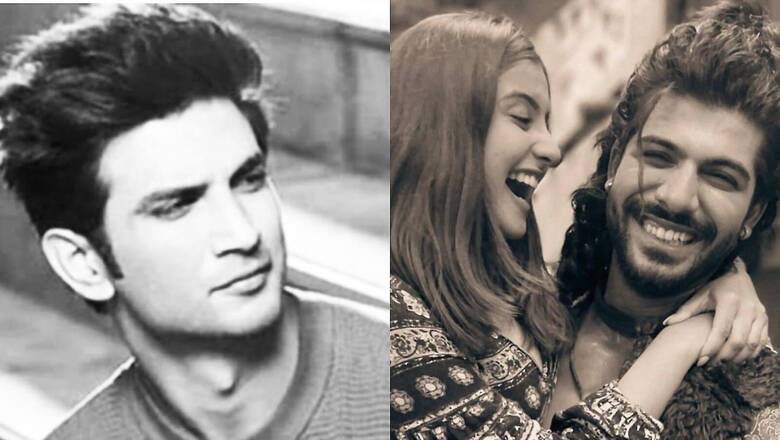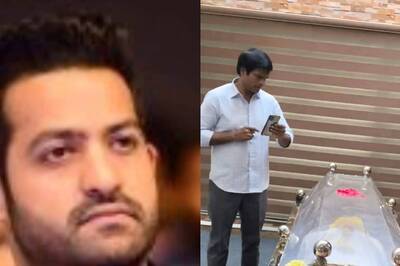
views
The death of Tunisha Sharma by suicide has raised a hornet’s nest. Many TV channels have gone berserk discussing why, where, how and when of the sad event and have converted it into a soap opera by discussing minute details of this unnatural demise, flouting the media guidelines of reporting suicide by the World Health Organisation and endorsed by the Press Council of India.
Media guidelines prescribed in 2017 clearly state the Dos and Dont’s.
The Dos are:
- Do provide accurate information about where to seek help
- Do educate the public about the facts of suicide and suicide prevention, without spreading myths
- Do report stories of how to cope with life stressors or suicidal thoughts, and how to get help
- Do apply particular caution when reporting celebrity suicides
- Do apply caution when interviewing bereaved family or friends
- Do recognise that media professionals themselves may be affected by stories about suicide
The Don’ts are:
- Don’t place stories about suicide prominently and don’t unduly repeat such stories
- Don’t use language which sensationalises or normalises suicide, or presents it as a constructive solution to problems
- Don’t explicitly describe the method used
- Don’t provide details about the site/location
- Don’t use sensational headlines
- Don’t use photographs, video footage or social media links
In an era where angst predominates and many relationships hang on a thin thread, those with fragile minds and brittle brains can be pushed over the fence by such criminally destructive reporting, causing copycat suicides. These irresponsible journalists need to be hauled up by law enforcement agencies and action should be taken against them. They distorted the death of actor Sushant Singh Rajput to suit the political interests of certain organisations and stooped low to reach out to a million eardrums and eyeballs. They’ve done the same with the tragedy of this fine young actress. A new statement uttered by a servant about the demise of Sushant Singh Rajput has become a sensation, thanks to the channels that are using it irresponsibly to fan waves of TRP.
Police Leaks and Generic Debates
The police have no business leaking the details of the event every day, raising confusion and emotional mayhem. They need to do their criminal investigation and take action if abetment is present or any evidence of foul play is visible. Leaking information that may not stand the scrutiny of the court of law, causing doubts, distress and communal divide is harmful and in bad taste. If the actor died of a sudden heart attack or a brain haemorrhage, there would have been no ‘Breaking news’. Nobody politicises sudden death by accident or a physical illness. Manufacturing a mystery movie out of an event that should be investigated scientifically is not only a sin but also a crime.
Psychological Autopsy is the answer
This is a scientific investigation used all over the world, whereby mental health professionals dissect the catastrophe after carefully perusing medical records, interviewing relatives, friends, and significant others and making sense of the unfortunate event by a holistic investigation through the scalpel of science. I had written to the highest echelons of the judiciary asking for a psychological autopsy for the death of Rohith Vemula many years ago but failed to convince these institutions. I had conducted the same on many occasions, including that of a journalist, when requested by the Press Club in Mumbai.
It is infuriating to see actors and acquaintances parading as best friends, spewing myths on the small screen by stating that “she was never depressed, she was bubbly” and so on. A few days back, on a show related to Tunisha Sharma, I was given just less than a minute and these actors and the journalists went on repeating the “15-minute lunch” that she had with her boyfriend just before the death. Such indulgence by the channels, of these actors who are not equipped to understand mental distress, is motivated and aimed at fabricating a ‘masala movie’ out of a calamity. This impacts the larger audience across the country as well as the families involved.
Are celebrities more prone to death by suicide?
Death by self-harm has increased by 10 percent between 2019 and 2020 and 7 percent between 2020 and 2021. The disconnection caused by globalisation, rapid pace of life and Covid distress has been blamed for the same. More students die of suicide than actors, more daily wage labourers die of self-harm than actors (1/4 deaths by self-harm as per NCRB data 2021). Family problems kill more people than the ‘glamour’ of the TV and film industry (1/3 reasons for self-harm deaths in 2021). The question that is always asked to me is that — when someone has everything under the sun, why kill oneself — and the answer to this is, ‘one may be skilled in a particular profession but emotional awareness and skills required to build mental health muscles may be missing.’ Also, the mind is like a fuse and can go off without reason. Many people may bring tons of emotional baggage from the past too while working. Actors have shared with me that those who have mood swings give brilliant performances in a few cases.
Celebrities have peculiar issues. The arc lights and the words ‘rolling, action’ give a dopamine high when the show succeeds. The shelf life of ‘fame and failures’ is short, just like the shrinking of edit pieces in newspapers and the frames of advertisements that vanish in a few seconds. Managing a slump or heady success, rejection in a relationship and other frustrations are skills that the actors and all of us need to hone and build. The big bosses of the TV and film industry need to invest in building mental health processes for all the stakeholders. Tears role, empathy oozes and the wallets open when an actor meets with a physical accident on the sets but the emotional state is invisible to them, always.
Depression can be invisible and cunning
Depression is a ‘fracture of the mind’ and can be ‘cunning’ and invisible to the non-discerning eye. Screening of the same, in an era of mental health epidemic in the world, is a must. When one feels sad, tearful, agitated, has sleep or appetite issues, feels lazy, worthless and hopeless, and has thoughts of self-harm, an immediate mental health screening is a must. Recently, research has shown that 50 percent of those who die by self-harm may not suffer from mental illness but may suddenly feel anxious, ashamed or lose meaning in life. This happens after a perceived break up, loss of face, loss of money, loss of job, failure in examinations and other frustrations.
I appeal to every family to build skills to deal with a NO, and mind muscles to face rejection and failure.
I appeal to every Indian to ‘kill shame and seek help’ when feeling down, sad, distressed or mentally ill from a qualified mental health professional.
Let Science prevail when we discuss deaths due to self-harm.
Dr Harish Shetty is a psychiatrist at Dr L.H. Hiranandani Hospital. The views expressed in this article are those of the author and do not represent the stand of this publication.
Read all the Latest Opinions here



















Comments
0 comment